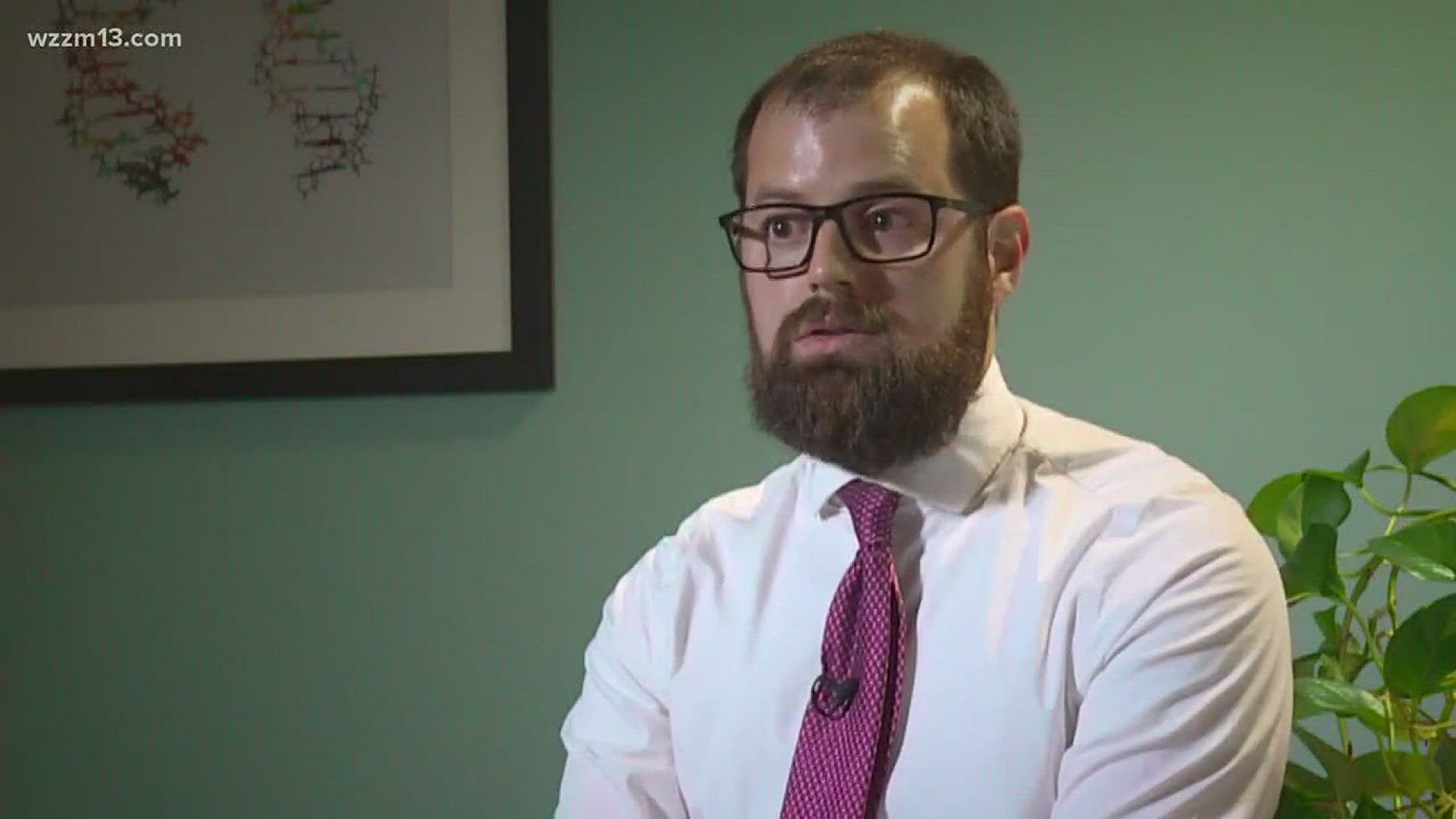DNA. The double helix of life. The answer to most questions about our genetic makeup.
"Genetics is a pretty young field some of the original geneticists are still around."
Genetic testing has only been around since the 1950's but Dr. Caleb Bupp, a geneticist for Spectrum Health Medical Genetics says the advancements have come quick, "Basically the technology that's used to do the testing has advanced so rapidly you can sequence someone's genome which is the absolute limit of what's possible with genetic testing for almost $1,000."
That's down from over $20,000 a decade ago. And it's what created the now booming consumer market which is expected to rake in 4.5 billion dollars in the next 10 years.
Dr. Bupp said it's where the future of genetic testing is headed, "For $99 bucks you can find out whether or not you carry the most common ones and you have a little bit of information."
The at home genetic test kit 23andMe has become one of the top consumer testing kits on the market, "It has certainly brought genetics and genetic testing into the public's consciousness a little bit more."
And it certainly piqued the interest of Consumer Reporter Sarah Sell who happily donated her sample of spit and shipped it off to find out what genetic conditions it would reveal.
It took about three weeks to get the results. Then we asked Dr. Bupp to look at what 23andMe found.
First up, Sarah's slight increase risk for macular degeneration, "Ok, so it says slightly increased risk. What does that mean?"
"So, from what I looked up age related macular degeneration happens to one in 2,000 people." said Dr. Bupp. "Now, it says you are at a slightly increased risk what does that mean? Does that mean a one in 1,000 percent chance or a 50% chance? It's not super useful as far as quantifying it for you and I think that's where it's tricky for people."
Next, according to the 23andMe report Sarah is not at risk for carrying the cystic fibrosis gene.
But Dr. Bupp says that's not the whole truth, "Okay, so that is actually incorrect. We know that you are not a carrier of a bunch of variance. I think 23 and me does like 28 variances for cystic fibrosis versus some of the bigger carrier screens look at 80 to 90 variances. So, it still leaves you with a risk of being a carrier."
Dr. Bupp says the 23andMe test is a good starting point. Think of it like a puzzle. It gives you some of the important pieces but without the other pieces you don't really know what the complete picture looks like. "To do the testing as cheap as they do they're kind of just hitting the high points." says Bupp.
But Dr. Bupp says there's also another side to consumer based genetic testing. Research, "Being able to take the data from people that have the testing and basically they sell it to other companies and other researchers because genetic testing and genetic research is powered by having more and more data out there."
23andMe sells de-identified genetic information. They have nearly 50 academic research collaborations. However, the customer must sign a release. To date, nearly 80% of its 1.2 million customers have.
Dr. Bupp says that's the fastest way to move the field of genetics forward, "If we could take everyone's genetic code and use it for research we would advance things very quickly but again we just have to make sure we do that in the best way possible."
Spectrum Health is one of the research sites participating in The All of Us Research Program. It's an historic effort to gather data from one million people to accelerate research and improve health.
If you are interested in participating you can sign up here.
►Make it easy to keep up to date with more stories like this. Download the WZZM 13 app now.
Have a news tip? Email news@wzzm13.com, visit our Facebook page or Twitter.

